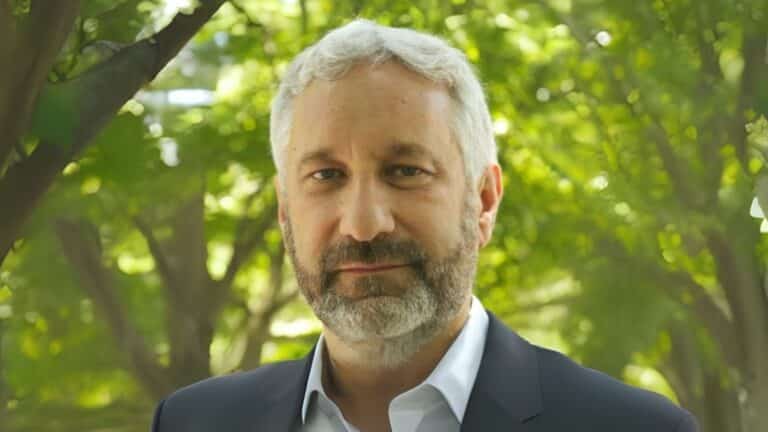A New Unifying Issue: Just About Everyone Hates Data Centers
Recent election results and evidence from states show misgivings about the growth of AI and the ramifications for energy costs and the environment.
Current Access Level “I” – ID Only: CUID holders, alumni, and approved guests only
President and CEO of CERES
Fossil fuel companies are under pressure from shareholders, citizens and the courts to shift their business models to reduce emissions or face huge financial consequences. There are now more than 1,500 large corporations with net-zero emission pledges, including one-quarter of the S&P 500.
In today’s episode, host Bill Loveless speaks with Mindy Lubber — President and CEO of CERES, a sustainability nonprofit that pushes private companies to integrate the risks associated with climate change into their business strategies.
They spoke about the changes happening in the market and inside boardrooms, and whether any of it is happening fast enough.
Elected officials face huge challenges when it comes to energy policymaking. They have very little time to learn complicated, nuanced issues. They're bombarded by information — some of...

The ten years since the Paris Agreement was signed at the UN Climate Change Conference, COP 21, have been the ten hottest years on record. And the outcome...

Last week, President Trump announced that he was imposing significant new sanctions on Russia. It’s an effort to cut off revenue Russia needs for its war in Ukraine....

Energy has long been used as a weapon. The United Kingdom blocked oil exports to Germany during World War I. Hitler’s fall was due in part to losing...

As diplomats meet in Brazil for COP30, global resolve to tackle the climate challenge appears badly frayed.

The fashion industry sits at the intersection of climate, energy, and consumption, facing growing pressure to cut emissions, transition to clean energy, and build circular systems across global supply chains.

As the host of COP30, Brazil has an unprecedented platform to demonstrate its climate leadership.

In the fall of 2024, the Center on Global Energy Policy (CGEP) at Columbia University SIPA launched the International Dialogue on Climate and Trade to afford governments and stakeholders opportunities to seek common ground on ways of more effectively and equitably managing issues at the intersection of climate and trade.
